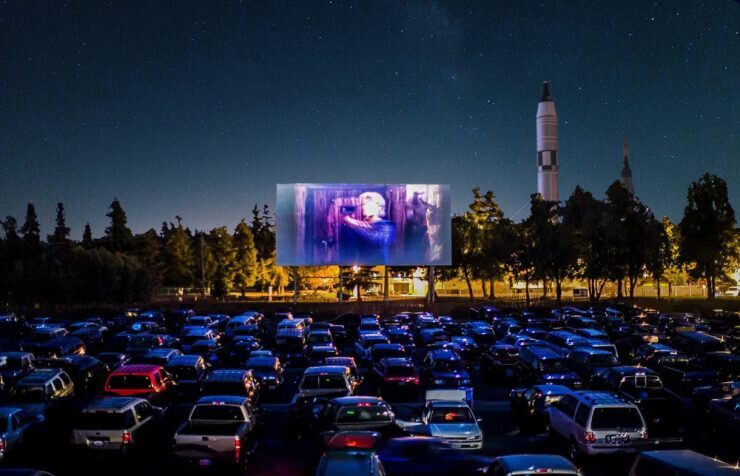
New York Film Festival Reimagines Cinema with Drive-In Screenings
Celebrating its 58th year, the New York Film Festival breaks tradition by transitioning to drive-ins and virtual screenings due to COVID-19. Running from September 17 through October 11, the festival that annually screened films in Lincoln Center would provide services to accommodate for the lack of in-person experiences.
Film at Lincoln Center announced that they still will host their screenings but premiere it on a digital platform for people who purchased tickets. Although the films will be streamed across the U.S and U.S territories, the screenings will run on Eastern Time. Drive-in screenings are available through several locations throughout New York and can only be accessed through the use of a car. Locations include the Queens Drive-in at the New York Hall of Science, the Brooklyn Drive-in at The Brooklyn Army Terminal, and the Bronx Drive-In at the Bronx Zoo.
New York will be joining Toronto and Venice as they are also providing virtual screenings to prevent in-person activity.
The 25 film line up includes 12 Years of Slave director, Steve McQueen’s Lovers Rock. Premiering as the festival’s opener, Lovers Rock is set in the 1980s focused on reggae, and is part of the Amazon miniseries, Small Axe. McQueen’s Mangrove and Red, White, and Blue are also set to premiere alongside Lovers Rock.
Directed by Chloé Zhao, the centerpiece film is an adaptation of Jessica Bruder’s 2017 nonfiction book, Nomadland. It follows a widow on her journey on the road after she wanders out of her Nevada hometown once it shuts down. The night will end with the closing film starring Michelle Pfeiffer, French Exit. Other notable titles consist of MLK/FBI, a film centered around Martin Luther King Jr.’s activism and FBI surveillance. Gunda has also received attention for its portrayal of animal life by following a mother pig on her journey.
Introductions and Q&As were prepared in advance for different films due to the suspicion that there would be no in-person press conferences. This includes roundtables discussing the films or talks answering press questions.
The history of the festival lived inside the walls of Lincoln Center in what is now known as Alice Tully Hall since 1963 and due to the pandemic, the festival underwent drastic changes. Film at Lincoln Center has committed to welcoming cinema from all over the world and now that the NYFF is breaking traditions, people are unsure what is next for film. However, Dennis Lim, Director of Programming for NYFF, explained in multiple interviews that even though it is a complicating time for film, looking at the positives will help everyone get through this. Films don’t have to be limited to a live audience. The original idea behind these film festivals was to gain an audience by portraying a certain message and using drive-in and virtual screenings doesn’t change that concept.
New York State previously announced movie theaters would open during phase four but this was later revoked due to an increase in cases. With Governor Cuomo holding off opening movie theaters and the Oscars pushed back, these film festivals will have to adapt to these new transitions in cinema.



